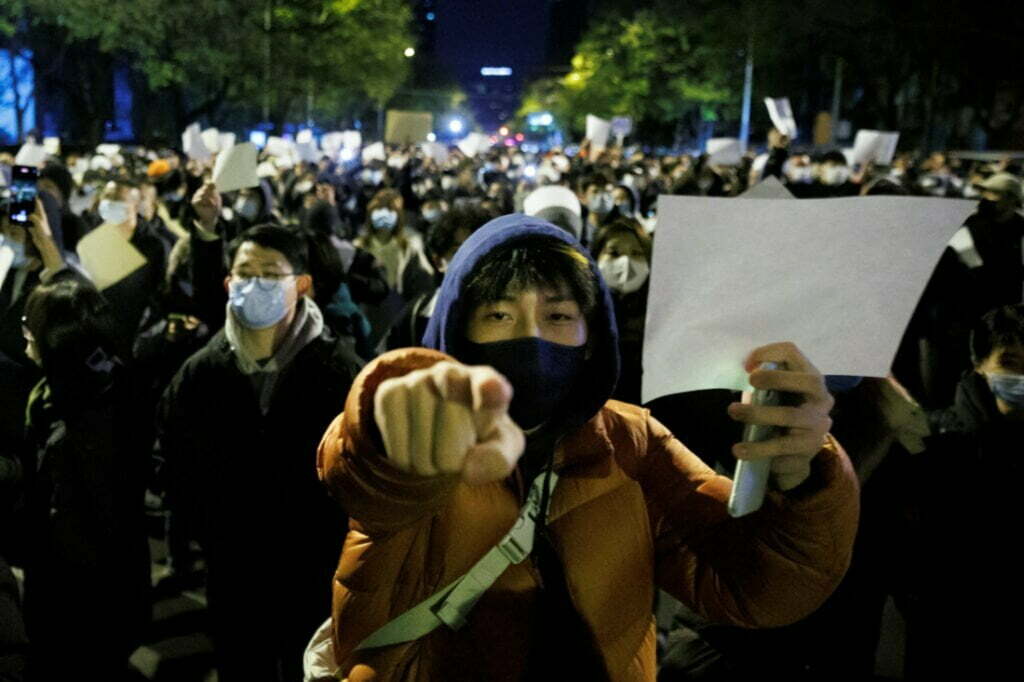I first visited China in 1999 – and traveled there with employees, clients, and family two or three times a year until I switched from my consulting business to my writings in 2012.
It was arguably the best of times to be in China for business and pleasure. It was that sweet spot between the dark days of Chairman Mao Zedong and the current twilight era of President Xi Jinping.
I saw first-hand how the people of China embraced newfound freedoms as the old Communist regulations started to ease. (I did not say ended but STARTED to ease.)
Seeing the growing unrest in authoritarian nations, I am inclined to borrow President Lincoln’s mantra. You can oppress some of the people all the time … all the people some of the time … but not all the people all the time. That seems to be playing out among the most oppressive and brutal authoritarian regimes –specifically China, Russia, Iran, and Venezuela.
The most significant major exception seems to be North Korea – where Kim Jong-un has been able to keep the lid on public discontent. Perhaps that is because the people of North Korea have never had a taste of freedom. And also, because North Korea remains a closed society without the Internet and international communications.
The others mentioned above have had a taste of freedom. They are less isolated – with the average person being able to send and receive communications to and from the rest of the world. Many have traveled outside their homeland – and interacted with visitors from all parts of the world. Western business and tourism were growth industries.
Hong Kong still has the memory of the freedoms and benefits of British rule. Beijing promised to maintain HK’s unique democratic freedoms under its One Nation/Two Systems policy. Xi has essentially ended that policy in response to the recent demonstrations in the island province.
Not since the Tiananmen Square massacre in 1989, has there been such a level of civil unrest in the Middle Kingdom. Ostensibly, it is a response to the restrictive policies of the Chinese government in response to Covid 19 and its offspring.
Ironically, as the world is seeing the Covid Pandemic state that started in China in the rearview mirror, the Beijing government is imposing the most Draconian restriction in the world. The people of China are figuratively – and in many cases, literally – under house arrest. Many have been sealed in their apartment buildings by fencing and sealed doors. Residents are even prevented from going to grocery stores or doctors’ offices. Others have security guards preventing residents from leaving. There are virtually no social events.
And if you do contract Covid, you will be taken to a quarantine facility – and your family may be confined to their homes. Where there is a breakout, an entire section of the city may be locked down.
That is pretty bad – but the Pandemic and the government’s reaction are not the only issues driving the street protests. They are only the wick that lit the powder keg. The issues run much deeper. We can see that because relaxing the restrictions is not the only demand. They want to end China’s surveillance policies … government censorship … government surveillance … “education” campaigns … and restore a wide range of personal freedoms.
Before President Xi, the people saw the benefits of capitalism and free market trade. They felt relief as old Mao Zedong’s oppressive practices were lifted and the Bamboo Curtain was eliminated – providing a free flow of information between the people of China and the rest of the world.
That all changed when Xi came to power. Even though his father and family were victims of Mao’s deadly Cultural Revolution, Xi was not driven to reform, but to be the man in charge of the oppression.
While the demonstrations in China are unprecedented, one should not underestimate the power of a brutal authoritarian ruler to oppress the people. To change that would take a revolution, and China is nowhere near that stage – unfortunately.
So. There ‘tis.
